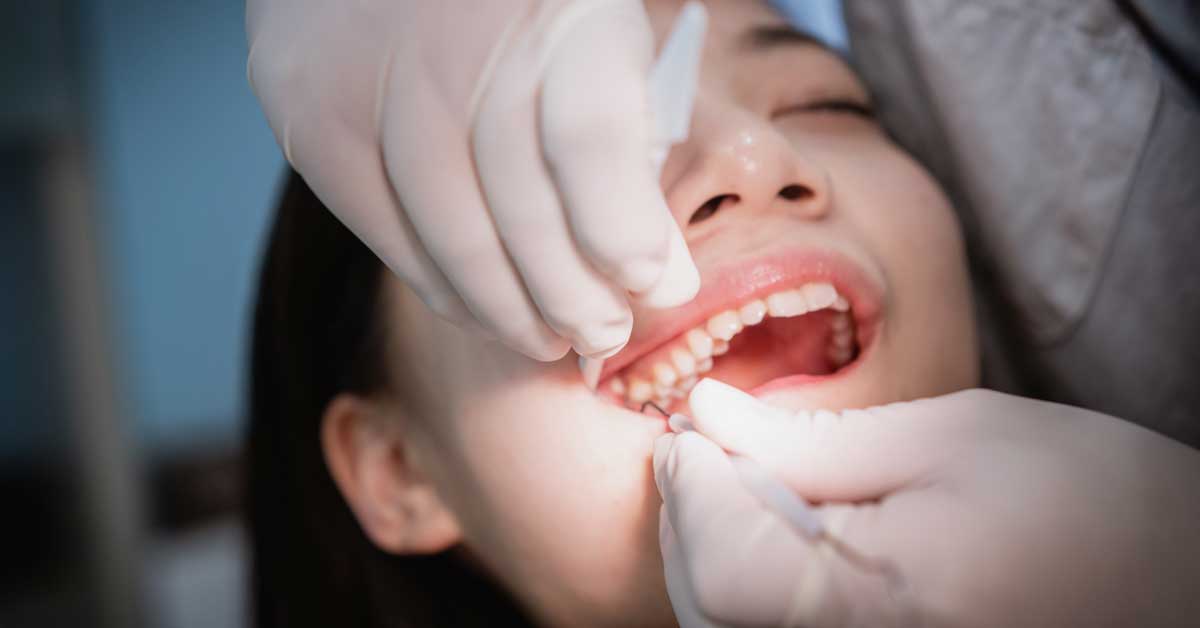Why Does My Tooth Smell Bad?
Have you ever noticed a bad smell coming from one of your teeth? It can be quite concerning and may leave you wondering what could be causing it. Is it due to an infection or decay?
When your tooth smells bad, it is often due to tooth decay, which is caused by bacteria feeding on the tooth, emitting an odor as the tooth decays. Additionally, bad breath can result from poor oral hygiene, food particles left in the mouth, or certain foods like garlic and onions.
Halitosis, or bad breath, can also be a symptom of underlying health conditions such as periodontal disease, dry mouth, or respiratory infections. Treatment for a smelly tooth depends on the cause and may involve cleaning, filling cavities, root canals, or extractions.
Preventing bad breath involves proper oral care like brushing and flossing regularly, cleaning dentures, and addressing any underlying health issues.
Key Highlights
-
A bad-smelling tooth can be caused by dental decay, gum disease, bacterial infections, poor oral hygiene, smoking, dry mouth, and other underlying dental issues.
-
To address the underlying cause of the odor, it is essential to consult a dentist for a proper diagnosis and treatment plan.
-
Maintaining good oral hygiene practices, including regular toothbrushing and flossing, along with dental check-ups and professional cleanings, can help prevent tooth odor.
-
Regular dental care, including proper toothbrushing and flossing, is crucial in maintaining good oral hygiene and preventing tooth odor.
-
If you experience a bad-smelling tooth, it is important to seek professional dental care and follow their recommended treatment plan.
Dental Decay and Bad Smell
Dental decay, also known as tooth decay, is one of the primary causes of a bad-smelling tooth. When bacteria in the mouth feed on the tooth, it leads to decay and the emission of an unpleasant odor. As this decay progresses, bacteria continue to build up on the teeth, feeding on plaque and food particles, causing erosion of the tooth enamel. This decayed tooth matter emits a strong and offensive smell.
Tooth decay is a serious oral health issue that should be addressed promptly to prevent further damage. If left untreated, decay can cause the tooth to become brittle and eventually break.
To prevent dental decay and the resulting bad smell, it is important to maintain good oral hygiene practices. This includes regular toothbrushing and flossing to remove bacteria and food particles from the teeth and gums.
“Proper oral hygiene is key in preventing dental decay and the associated bad smell.”
In addition to regular oral hygiene, it is crucial to visit a dentist for routine dental check-ups. A dentist can identify early signs of decay and provide appropriate treatment to prevent further deterioration.
It is important to remember that dental decay and its associated bad smell are preventable with proper oral care. Taking care of your teeth and maintaining good oral hygiene can go a long way in preventing dental decay and the resulting unpleasant odor.
By addressing dental decay and maintaining good oral health practices, you can keep your teeth fresh and free from any unwanted smells.
Gum Disease and Tooth Smell
Gum disease is another common cause of a bad-smelling tooth. When plaque and tartar buildup are not effectively removed, they can push beneath the gum line and form deep pockets. This creates a favorable environment for the growth of bacteria, leading to an infection that causes a strong odor. The presence of bacteria and infection can contribute to bad breath, also known as halitosis.
If gum disease is left untreated, it can lead to more serious dental issues, such as loose teeth. The infection can weaken the gum tissue and bone supporting the teeth, causing them to become loose and potentially even fall out.
To prevent gum disease, it is essential to maintain good oral hygiene practices, which include regular brushing, flossing, and professional dental cleanings. By removing plaque and tartar buildup, you can reduce the risk of gum disease and the associated tooth smell.
In cases where gum disease has already developed, additional treatment may be necessary. This may involve scaling and root planing, a deep cleaning procedure that removes plaque and tartar from beneath the gum line. Antibacterial rinses or medications may also be prescribed to help control the infection and reduce the odor.
| Cause | Solution |
|---|---|
| Plaque and tartar buildup under gums | Regular brushing and flossing, professional dental cleanings |
| Infection causing odor | Scaling and root planing, antibacterial rinses or medications |
| Loose teeth due to gum disease | Prompt treatment to control the infection and preserve remaining teeth |
Bacterial Infection in Tooth and Tooth Abscess
A bacterial infection in the tooth can lead to the formation of a tooth abscess. This abscess is filled with a liquid that has an unpleasant odor as it drains. The presence of an abscess puts pressure on the tooth root, causing pain. In some cases, the abscess may also cause a cyst or lesion to form on the gum.
Prompt dental treatment is necessary to address the infection and save the tooth. This may involve draining the abscess, rinsing the area with warm salt water, and prescribing antibiotics. In severe cases, a root canal may be necessary to remove the infected tissue and protect the tooth with a dental crown. If the tooth cannot be saved, extraction may be required, followed by tooth replacement options such as a dental implant, bridge, or partial denture.
| Bacterial Infection in Tooth and Tooth Abscess | Procedures for Treatment |
|---|---|
| Draining the abscess | Removes the liquid and relieves pressure on the tooth root |
| Rinsing with warm salt water | Cleans and disinfects the affected area |
| Prescribing antibiotics | Fights the bacterial infection |
| Root canal | Removes infected tissue and protects the tooth with a dental crown |
| Tooth extraction | Removes the infected tooth |
| Tooth replacement options | Dental implant, bridge, or partial denture |
If you suspect a bacterial infection in your tooth or have symptoms of a tooth abscess, it is important to consult a dentist for a proper diagnosis and treatment plan. Ignoring the infection can lead to further complications and potential tooth loss. Remember, early intervention is key in preserving your oral health.
Poor Oral Hygiene and Tooth Odor
Poor oral hygiene can have significant effects on your oral health, leading to various dental issues, including tooth odor. When you don’t practice proper oral hygiene, food particles can get trapped in your teeth, creating a breeding ground for bacteria. These bacteria feed on the food particles and produce unpleasant odors, resulting in bad breath.
“Maintaining good oral hygiene practices is essential in preventing tooth odor associated with poor oral hygiene.”
In addition to food particles, plaque buildup is another factor that contributes to bad breath. Plaque is a sticky film that forms on your teeth and contains harmful bacteria. When plaque is not removed through regular brushing and flossing, it can accumulate and release foul-smelling gases, causing bad breath.
Smoking is yet another habit that can impact the smell of your teeth. The chemicals in tobacco products have a strong and unpleasant odor that can linger in the mouth, leading to tooth odor. Quitting smoking can greatly improve not only your oral health but also the overall smell of your breath.
Dry mouth, also known as xerostomia, can also contribute to tooth odor. Saliva plays an important role in cleansing the mouth and neutralizing acid produced by oral bacteria. When there is inadequate saliva production, bacteria can thrive, leading to bad breath. Dry mouth can be caused by medications, medical conditions, or simply not drinking enough water.
Lastly, oral bacteria themselves can be a common cause of bad breath. The bacteria naturally present in your mouth can produce sulfur compounds, resulting in an unpleasant smell. Maintaining good oral hygiene, including regular brushing, flossing, and using an antibacterial mouthwash, can help control the growth of oral bacteria and minimize their impact on tooth odor.
“Proper oral hygiene, quitting smoking, staying hydrated, and regular dental check-ups are essential in preventing tooth odor associated with poor oral hygiene.”
By prioritizing good oral hygiene, making lifestyle changes to eliminate smoking, and addressing dry mouth, you can effectively combat tooth odor caused by poor oral hygiene. It is also important to visit your dentist regularly for professional cleanings, dental check-ups, and personalized advice on maintaining optimal oral health.
Conclusion
A bad-smelling tooth can be a sign of underlying dental issues such as dental decay, gum disease, bacterial infections, poor oral hygiene, smoking, and dry mouth. It is important to address the underlying cause of the odor in order to prevent further damage and promote oral health.
Regular dental care is crucial in maintaining good oral hygiene and preventing tooth odor. This includes proper toothbrushing and flossing techniques to remove plaque and food particles, along with regular dental check-ups and professional cleanings to monitor and maintain oral health.
If you experience a bad-smelling tooth, it is important to consult a dentist for a proper diagnosis and treatment plan. The dentist will be able to identify the root cause of the odor and recommend appropriate treatment options, such as filling a cavity, treating gum disease, or addressing bacterial infections.
By taking proactive steps to maintain good oral hygiene and seeking timely dental care, you can prevent tooth odor and maintain a healthy smile.
Frequently Asked Questions
Bad-smelling teeth can be caused by dental decay, gum disease, bacterial infections, poor oral hygiene, smoking, dry mouth, and other underlying dental issues.
Certain foods and drinks, such as garlic, onions, coffee, and alcohol, can contribute to bad breath. However, maintaining good oral hygiene can help minimize their impact on the smell of your teeth.
Yes, poor oral hygiene can lead to plaque and tartar buildup, which harbors bacteria that produce foul-smelling odors, resulting in bad breath and tooth odor.
Treatments may include fillings, deep cleaning (scaling and root planing), antibiotics, root canals, or tooth extraction, depending on the underlying cause.
Yes, a bad-smelling tooth can indicate serious health issues like dental decay, gum disease, or a bacterial infection, which require prompt attention from a dental professional.
Cosmetic and General Dentistry In Miami, FL
Take the first step towards the smile of your dreams by booking a consultation with our experts in cosmetic and general dentistry.



